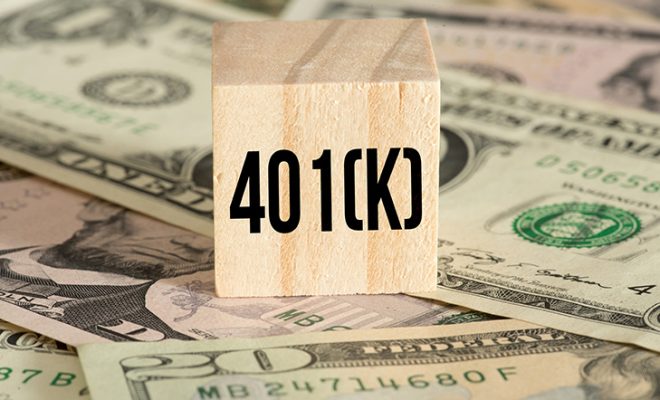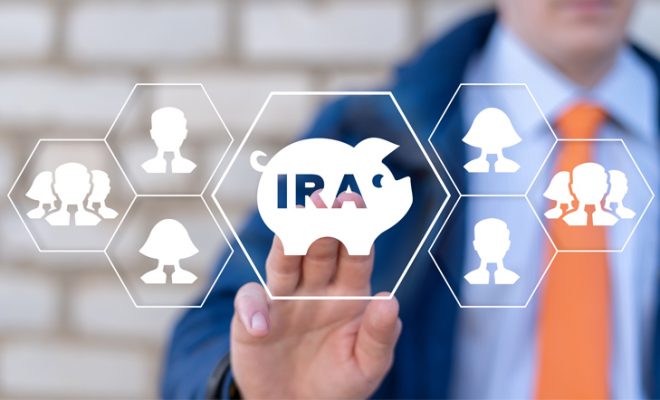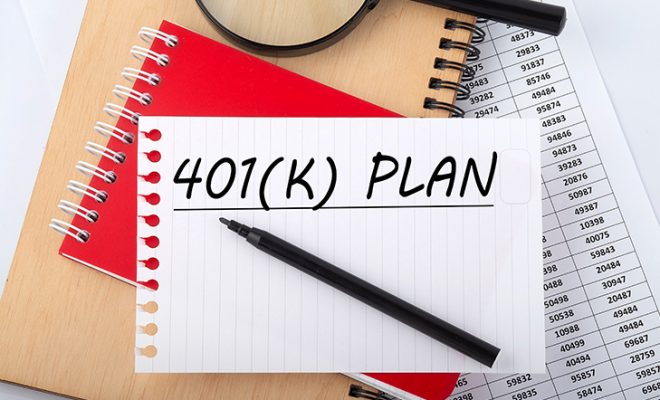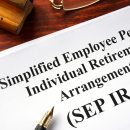Why Your 401(k) May Not Be Enough for Retirement
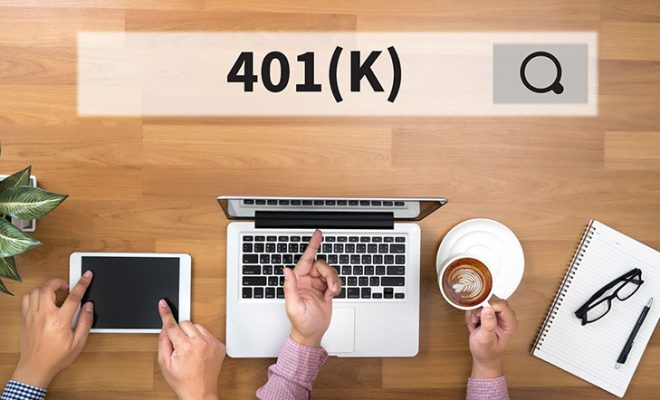
The average median retirement income as of 2022, as declared by the U.S. Census Bureau for someone aged 65 or above, is $47,357. The mean average retirement income for this age group is $73,228. Considering the fact that most people retire at the age of 65 or around that time, you would need to save at least this much if you were to retire today. However, this amount is the median/mean income, and may not be suitable for all individuals. The city you live in, your financial responsibilities, health expenses, taxes, and other similar aspects will dictate the amount of money you need to save. In addition to this, the inflation rate will also impact your savings. The inflation rate rose to 9.1% in June 2022. An inflation rate this high can considerably affect a retirement fund.
Most people use a 401k retirement account to save for their golden years. The 401k is a tax-advantaged account that employers offer their employees. It is a part of the employee benefits and is usually provided to retain employees and boost their productivity. Not all companies offer a 401k. However, most choose to offer it. Many also match the employee’s contribution. Further, there are two types of 401k accounts – a traditional and a Roth. You can select any based on your needs. If you wish to learn more about 401ks and their pros and cons, how they are taxed, withdrawal rules, etc., consult with a professional financial advisor who can guide you on the same.
While the 401k is a great retirement account, it may not suffice alone for all your retirement needs. If you are wondering how much income you 401k may provide and whether it is enough for your retirement needs, here are some things you should know:
Is a 401k the best way to save for retirement?
A 401k can offer many advantages, the most prominent of them being tax benefits. As explained above, there are two types of 401k accounts. The traditional 401k offers tax-free contributions, and your withdrawals are taxed in retirement. It also has mandatory Required Minimum Distributions or RMDs from the age of 72. So, you are obligated to draw your money even if you do not need it.
Nevertheless, if you are trying to save on cash before retirement, you can opt for a traditional 401k. On the other hand, a Roth 401k offers you tax-free withdrawals in retirement. You pay tax on your contributions but have no tax liabilities on your withdrawals post the age of 59.5. Moreover, you also do not have RMDs. Either way, you can save money on tax and use it for your other financial needs.
However, even with these benefits, the 401k does have some limitations. If you are wondering whether a 401k is the best way to save for retirement, you should know the following issues associated with a 401k:
1. Low liquidity:
A 401k account has certain restrictions of use. You can only withdraw your money after the age of 59.5. Any premature withdrawals attract a penalty of 10% and also trigger your tax liabilities. For this reason, a 401k cannot be used for emergencies or short-term needs. While you do have the option to take a loan against your funds, you have to repay your loan within the stipulated time. Moreover, the loan facility may not be offered by all plan administrators, and you may have to check with your employer before you can use this facility.
Life is uncertain, and if you only use a 401k for your future needs, you may find yourself in a fix if you need funds instantly for an unexpected situation.
2. High fees:
A 401k can have high fees that may eat into your earnings. The costs can differ from one plan administrator to another. In some cases, you may have to pay trustee fees, bookkeeping fees, administration fees, finder fees, legal fees, and more. Some of these may be hidden too. So, you may end up spending more than you understand. The amount of fee you pay can depend on the choice of your investments. For example, if you are investing in mutual funds, you may pay more than others. Mutual funds have a 2% fee over and above other fees. This can be a liability.
3. Low contribution limits:
The annual contribution limit for a 401k is capped at $20,500 for people under the age of 50 as of 2022. For those aged 50 or more, this is increased to $27,000 with an additional catch-up contribution of $6,500. While it can be good to maximize these limits, relying on them solely may not be the best thing. Moreover, these annual limits may be negligible for the higher-income groups. For someone over the age of 50, earning over 150,000, $27,000 only amounts to 18% of their income. This can be grossly low to cover their needs. Moreover, if you look at inflation and the negative impact it can have on the value of money in the future, you would be left with minimal earnings.
4. Taxes advantages:
While a 401k is a tax-advantaged account, it does not entirely eliminate the tax. Irrespective of what you choose, you do end up paying tax. If you have a corpus of $1 million in a traditional 401k in retirement, you will pay tax on this money. It may seem like the $1 million is yours to use. But with taxes and inflation, you will receive a much lower sum than you anticipate.
What can you do to benefit from a 401k?
You can follow the strategies given below to ensure that your 401k offers you the best returns:
1. Maximize your contributions:
Maximizing your contributions irrespective of how much you earn can help you build a large retirement nest egg. The Internal Revenue Service (IRS) sets contribution limits each year for retirement accounts, including the 401k. You can aim to contribute up to the maximum each year. If you are over the age of 50, make sure to take advantage of the catch-up contribution, too. This can be a consistent way to build up your savings without feeling burdened in the later years.
2. Choose the right investment options:
A 401k retirement account is an investment-only retirement account that offers multiple options for various risk appetites, ages, and goals. You can choose from company stocks, bonds, mutual funds, target date funds, and others. When selecting investments, make sure to pay attention to the fees as well. Investments with a high cost can negate your earnings. So, be careful. You can consult a financial advisor for this if you want. A financial advisor can help you create a suitable 401k portfolio that aligns with your financial goals and investment budget.
3. Look for an employer match:
Although employees do not have a say in whether the employer offers a match, you can still try to negotiate a match. This can be done before you accept a job. Most people pay attention only to income. However, it is essential to look at other benefits too. In many cases, employers may offer a 401k match to only the higher positions in the company. If you have received a promotion, you can ask your company to also provide you with an employer match. You can also ask them to increase the match with time. This can be a great way to increase your corpus. The employer match is an added benefit that gets invested on top of your contributions, leading to double the gain at maturity.
4. Start investing at a young age:
The success of a 401k retirement account is based on discipline and consistency. If you start investing in a 401k from a young age, you will be able to save up more money over the long term. The 401k can, in fact, be one of your first investments, as most employers offer it. If you start working in your 20s and retire in your 60s, you would have 40-odd years to build your retirement nest egg.
Is a 401k enough for retirement?
Given the shortcomings of the plan, it would not be correct to say that it is enough for your retirement. A 401k can be one of the accounts that you use to plan for retirement. However, there are other things that can add to your investment portfolio to ensure that you have a sufficient corpus later.
Here are some investment options you can consider:
1. Stocks:
Stocks can offer high returns if invested correctly and at the right time. They carry high risk and are, therefore, ideal for experienced investors and those with a long investment term. If you have some experience in investing, understand the dynamics of the stock market, and have a high-risk appetite, you can invest in stocks to create wealth. However, make sure to understand the core principles of the companies you invest in, and follow corporate actions, market cycles, etc., to avoid mistakes.
2. Real estate:
Not only is real estate an excellent investment for capital appreciation but also for security. Real estate, such as a home, can be a family asset that can help multiple generations. In addition to this, real estate can also be a source of passive income. You can invest in commercial or residential property and rent or lease it out. The rental income can be your second source of income. This can either be used to cover your expenses or for investment in other instruments like stocks, mutual funds, etc. However, real estate can have a high cost of investment. It may take years for you to accumulate the required money. Additionally, you may also have to resort to loans. So, make an informed choice after weighing all the pros and cons. Further, you can also consider investing in Real Estate Investment Trusts (REITs). These have smaller investment values with the same benefits as real estate investing, making them more accessible to all income groups.
3. Individual Retirement Account (IRA):
An IRA is a retirement account, much like the 401k. It is a tax-advantaged account with two types – traditional and Roth. You can invest in either, depending on your tax liabilities and preferences. Unlike a 401k, an IRA is not a company-sponsored plan. Instead, it can be opened at a broker, credit union, insurance company, etc. You can open an IRA even if you have a 401k. If you do not have a 401k, an IRA can be even more critical.
The IRS sets the contribution limits for IRAs, too. As of 2022, you can contribute $6,000 each year to an IRA if you are under the age of 50. For those aged 50 or over, there is a catch-up contribution limit of $1,000, bringing the total to $7,000. While this may be a lot less than the contribution limits for a 401k, it can still be helpful in retirement savings if you are consistent with your contributions and do not make any non-qualified withdrawals before the age of 59.5 years.
Other than the options mentioned above, you can also invest in exchange-traded funds, international funds, cryptocurrency, and other similar options. If you have a low-risk appetite, you can consider bonds, U.S Treasury bills, certificates of deposit (CDs), and others. No matter what you choose, make sure your investment portfolio is well-diversified and is able to stand the test of time, changing market dynamics, inflationary periods, etc. You can take help from a financial advisor to do this or increase your financial acumen to make timely decisions.
To conclude
The answer to how much income your 401k will provide depends on the kind of investments you choose, the investment term, your contributions, and whether or not you get an employer match. However, even if all things work in your favor, it may still not be advised to rely solely on a 401k for all your retirement needs. Instead, invest in different options and build a comprehensive portfolio.
Moreover, it is important to be disciplined in your savings and to curb your expenses in any way you can. Lastly, it can help to get a professional’s perspective from time to time. This can ensure you have the right approach and are not making unwanted errors. So, consider hiring a financial advisor. Use the free advisor match service to connect with 2-3 financial advisors suited to meet your financial requirements.
For further information on creating a suitable retirement plan for your unique financial requirements, visit Dash Investments or email me directly at dash@dashinvestments.com.
About Dash Investments
Dash Investments is privately owned by Jonathan Dash and is an independent investment advisory firm, managing private client accounts for individuals and families across America. As a Registered Investment Advisor (RIA) firm with the SEC, they are fiduciaries who put clients’ interests ahead of everything else.
Dash Investments offers a full range of investment advisory and financial services, which are tailored to each client’s unique needs providing institutional-caliber money management services that are based upon a solid, proven research approach. Additionally, each client receives comprehensive financial planning to ensure they are moving toward their financial goals.
CEO & Chief Investment Officer Jonathan Dash has been covered in major business publications such as Barron’s, The Wall Street Journal, and The New York Times as a leader in the investment industry with a track record of creating value for his firm’s clients.


